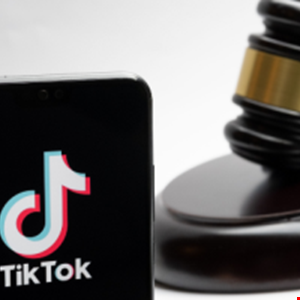- AI의 상상과 실사 영화의 콜라보···구글, 단편 영화 앤세스트라 제작 과정 공개
- Select Prime members can get Kindle Unlimited for 3 months at no cost - here's how
- Modernization means putting developers in the driver’s seat
- Get a free iPhone 16 Pro for free from T-Mobile, no trade in required - here's how
- The LG C4 OLED for $800 off is one of the best Prime Day TV deals right now
Senate Approves Bill Banning TikTok From US Government Devices

The US Senate passed a bill on Wednesday banning federal employees from using the TikTok app on devices provided by the government.
The No TikTok on Government Devices Act was approved after no senators objected to the measure authored by Missouri republican senator Josh Hawley.
“TikTok is a Trojan Horse for the Chinese Communist Party. It’s a major security risk to the United States, and until it is forced to sever ties with China completely, it has no place on government devices,” Hawley said in a statement, commenting on the news.
“States across the US are banning TikTok on government devices. It’s time for Joe Biden and the Democrats to help do the same.”
Despite passing the Senate vote, the bill still needs to receive approval from the US House of Representatives before the end of the current congressional session (expected next week). Only then will it be presented to President Joe Biden for approval.
“Security concerns with TikTok are not new, though their parent company, ByteDance, has gone out of its way to allay fears that they are controlled by the Chinese Communist Party (CCP),” explained Vulcan Cyber senior technical engineer Mike Parkin.
“Whether those concerns are well-founded or not, various US states have already banned TikTok on the devices they own, and there are discussions about banning it at the Federal level.”
More specifically, the new law requires the Office of Management and Budget to create standards for executive agencies that need TikTok and any successor application from the developer to be removed from agency information technology.
The bill clarifies that such standards must include exceptions for law enforcement activities, as well as national security interests and security researchers.
“While TikTok may not pose a direct security threat, it does have the same mass data-gathering capabilities we see with some of the other major players such as Facebook and Google,” Parkin added.
“That mass of data can be used to glean insights from and […] project influence on the population as a whole. The difference here is that TikTok has long been rumored to have ties to the CCP, who would have geopolitical interest in the data.”
The bill’s Senate approval comes weeks after US security company Cerby published a report suggesting TikTok and other social media platforms’ security shortcomings could lead to disinformation.

